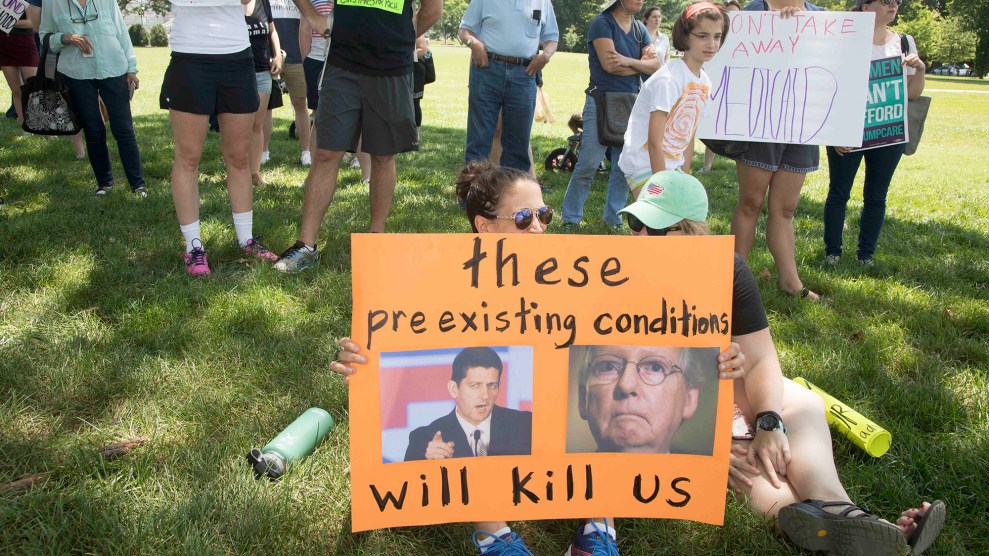
Demonstrators gathered at the U.S. Capitol on Saturday June 24, 2017 to protest a proposed Senate healthcare bill.Jeff Malet/ZUMA
I would like to reacquaint you with the Congressional Budget Office’s analysis of Trumpcare, aka the American Health Care Act of 2017. This is what they said about its effect on people with pre-existing conditions:
CBO and JCT expect that, as a consequence, the waivers in those states would have another effect: Community-rated premiums would rise over time, and people who are less healthy (including those with preexisting or newly acquired medical conditions) would ultimately be unable to purchase comprehensive nongroup health insurance at premiums comparable to those under current law, if they could purchase it at all—despite the additional funding that would be available under H.R. 1628 to help reduce premiums. As a result, the nongroup markets in those states would become unstable for people with higher-than-average expected health care costs. That instability would cause some people who would have been insured in the nongroup market under current law to be uninsured.
In simple English, AHCA would have allowed states to request waivers from the requirement that everyone, including those with pre-existing conditions, be charged the same rate. In time, this would have made insurance so expensive that nobody with a pre-existing condition could afford it. On May 4th, nearly every Republican in the House voted to pass this bill.
Later, the Senate tried and failed to pass several variations on this bill. The whole process was pretty confusing, but all of their proposals eliminated protections for people with pre-existing conditions. Some of them did it directly and some of them did it only on a close look, but they all did it. All but three Republicans voted for the final bill.
In other words, forget what Republicans say. Practically every Republican in Congress is on record as actually voting for legislation that eliminates protections for pre-existing conditions and doing it repeatedly. President Trump also supported all these bills.
This is the record Democrats have to work with. They actually passed Obamacare, which manadates that insurance companies cover everyone at the same rate, even those with expensive pre-existing conditions. Republicans, by contrast, almost unanimously voted to repeal those protections.
That’s the record. That’s the difference between Democrats and Republicans.

















